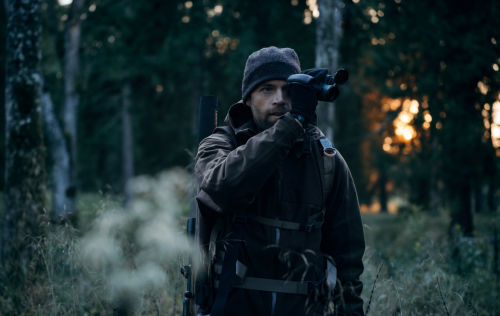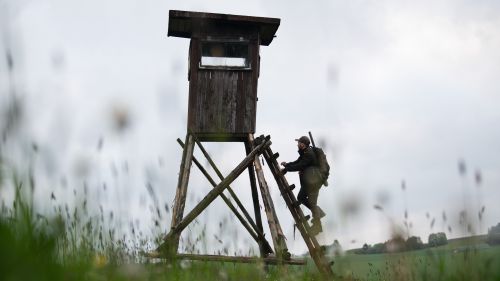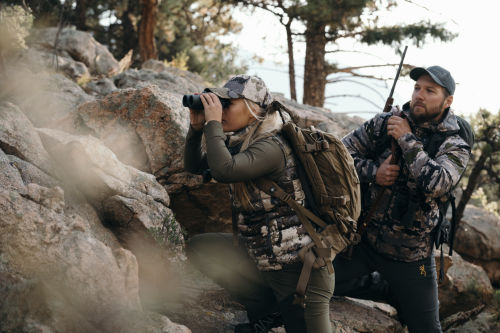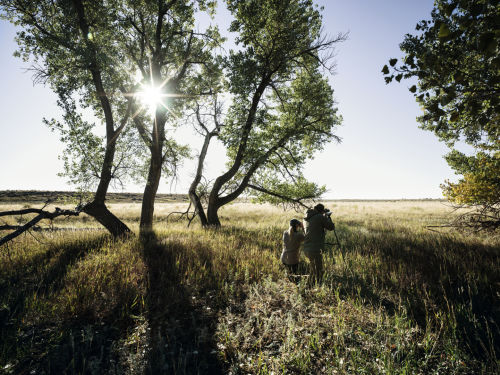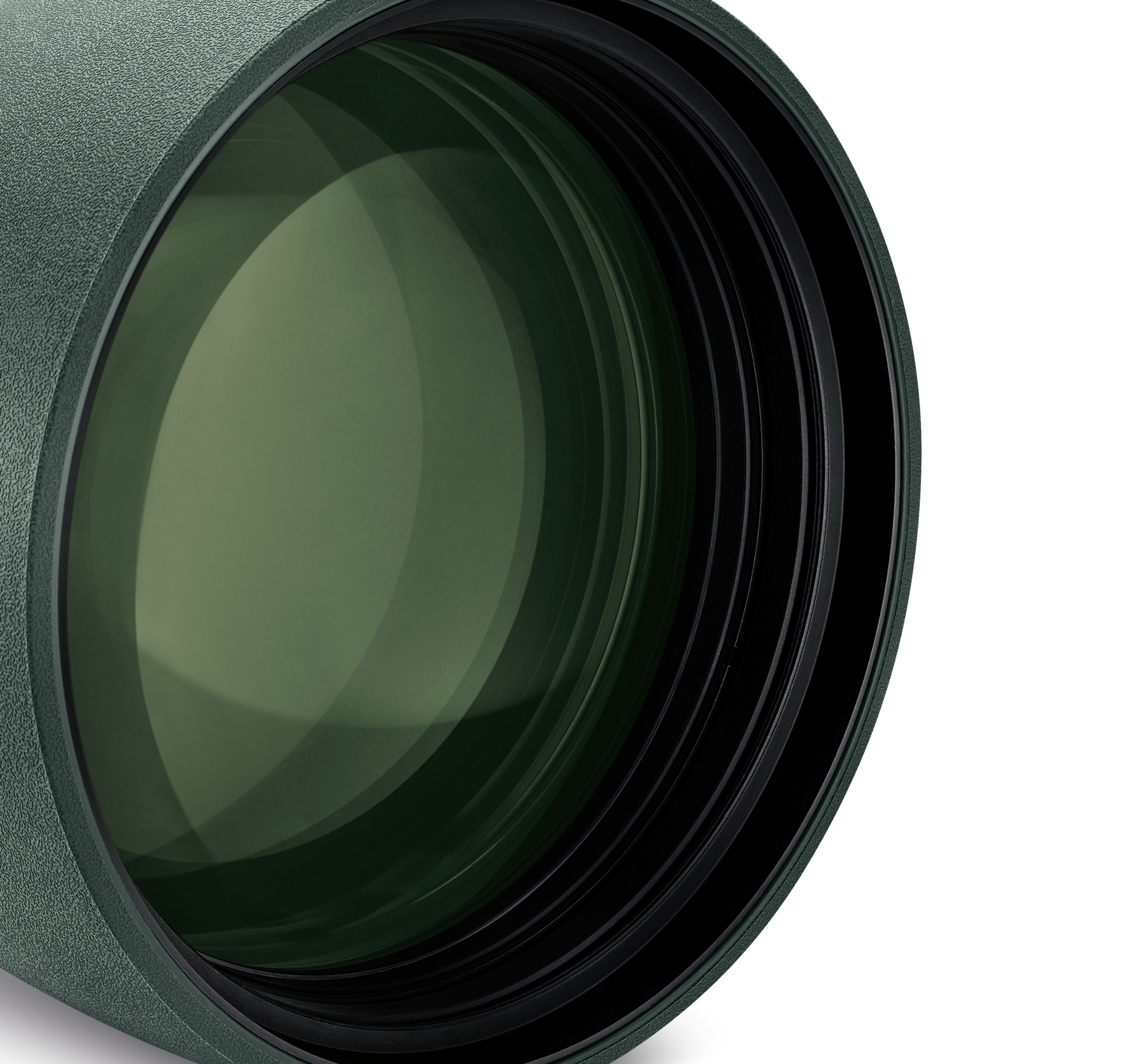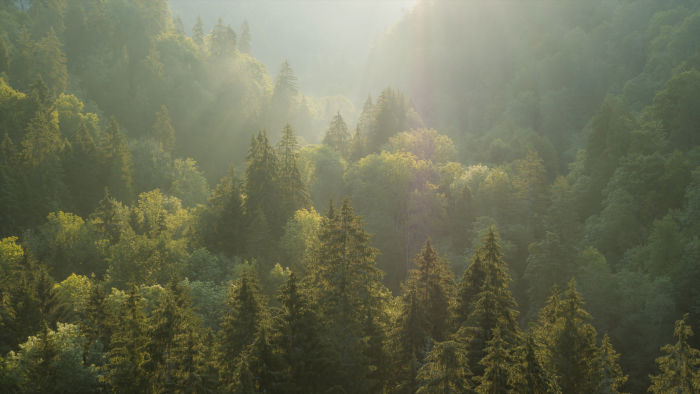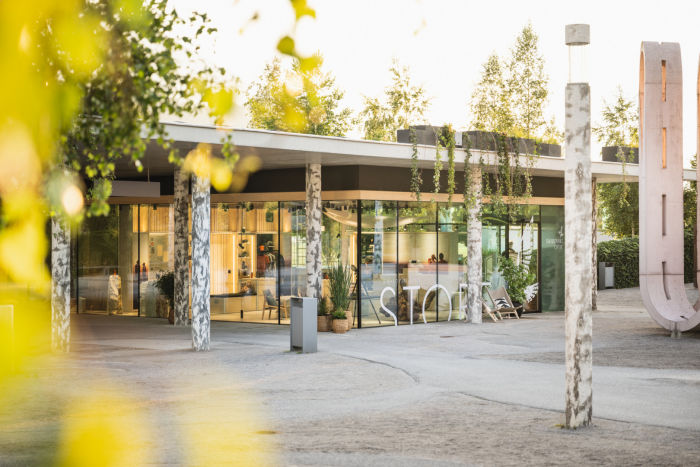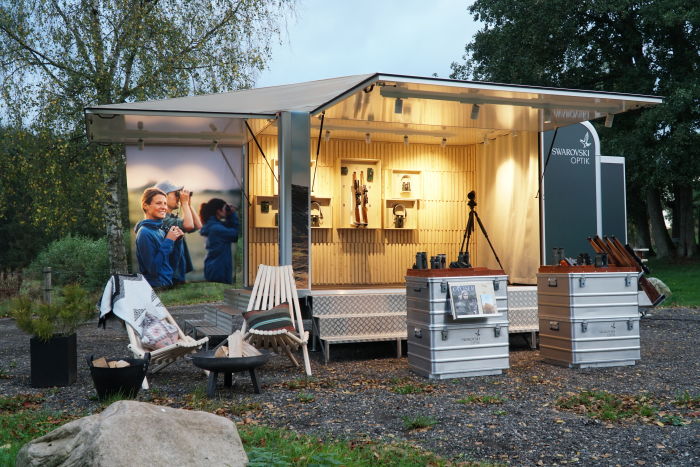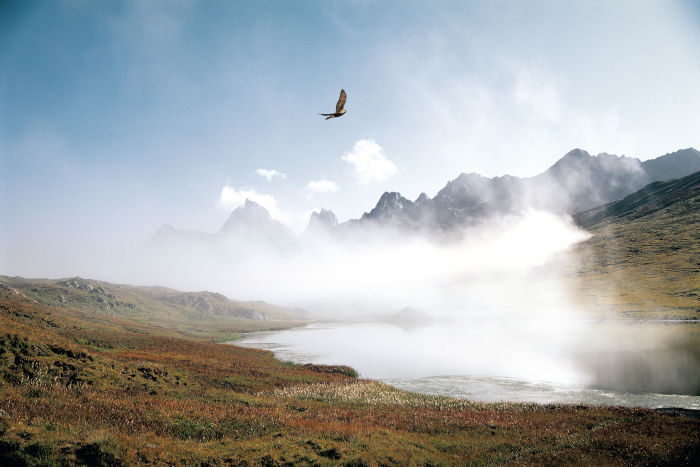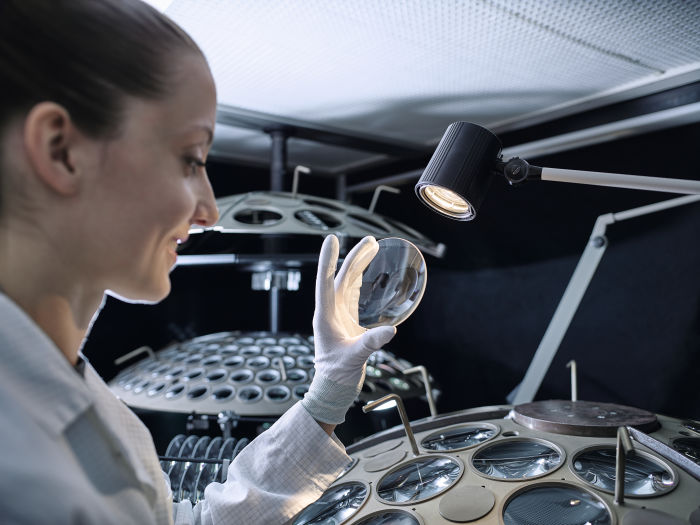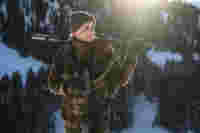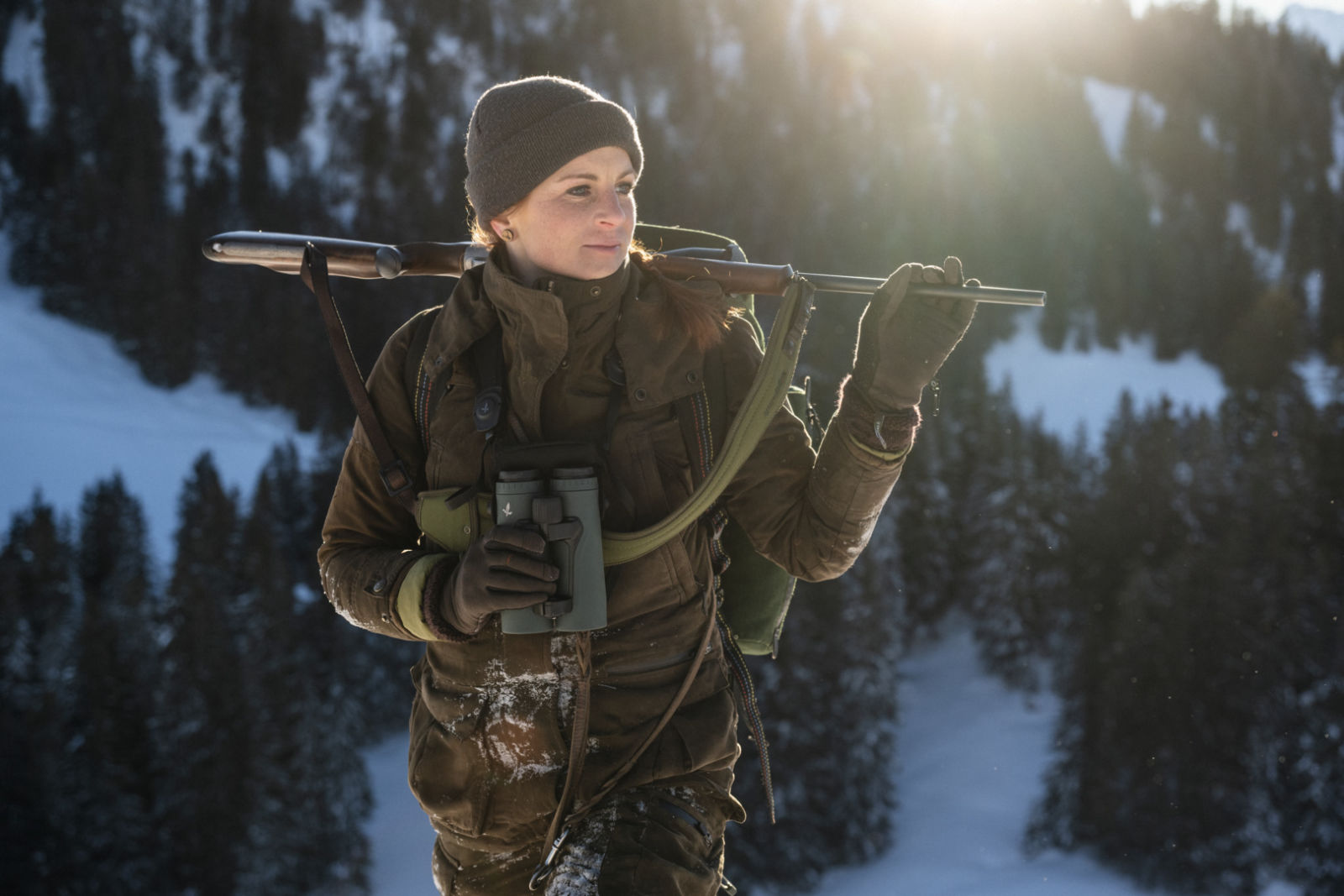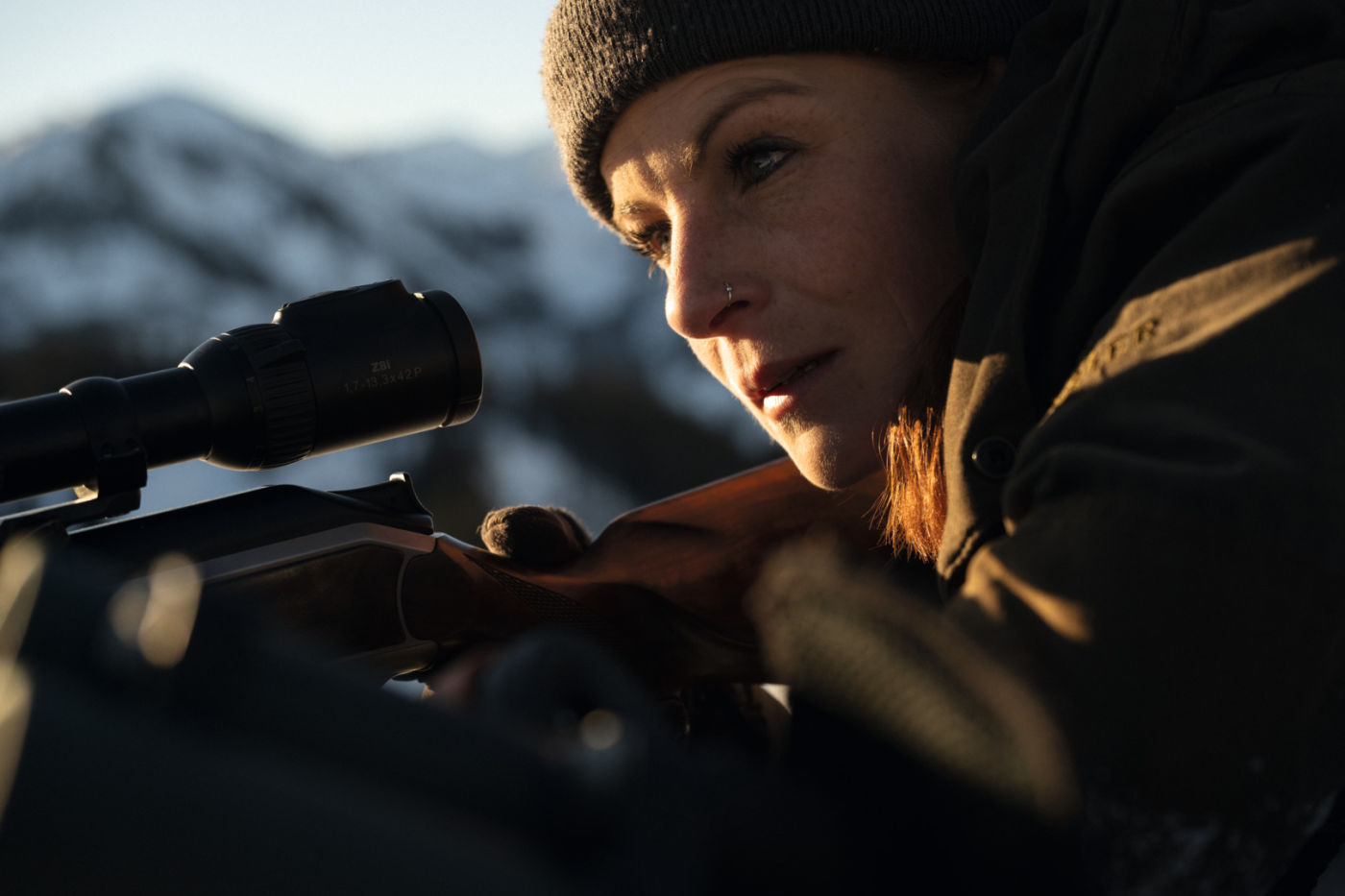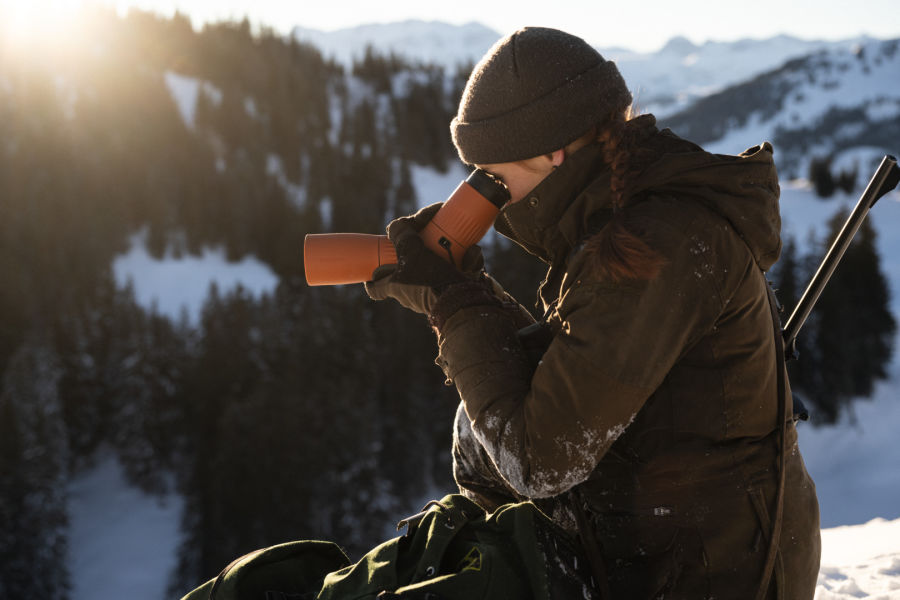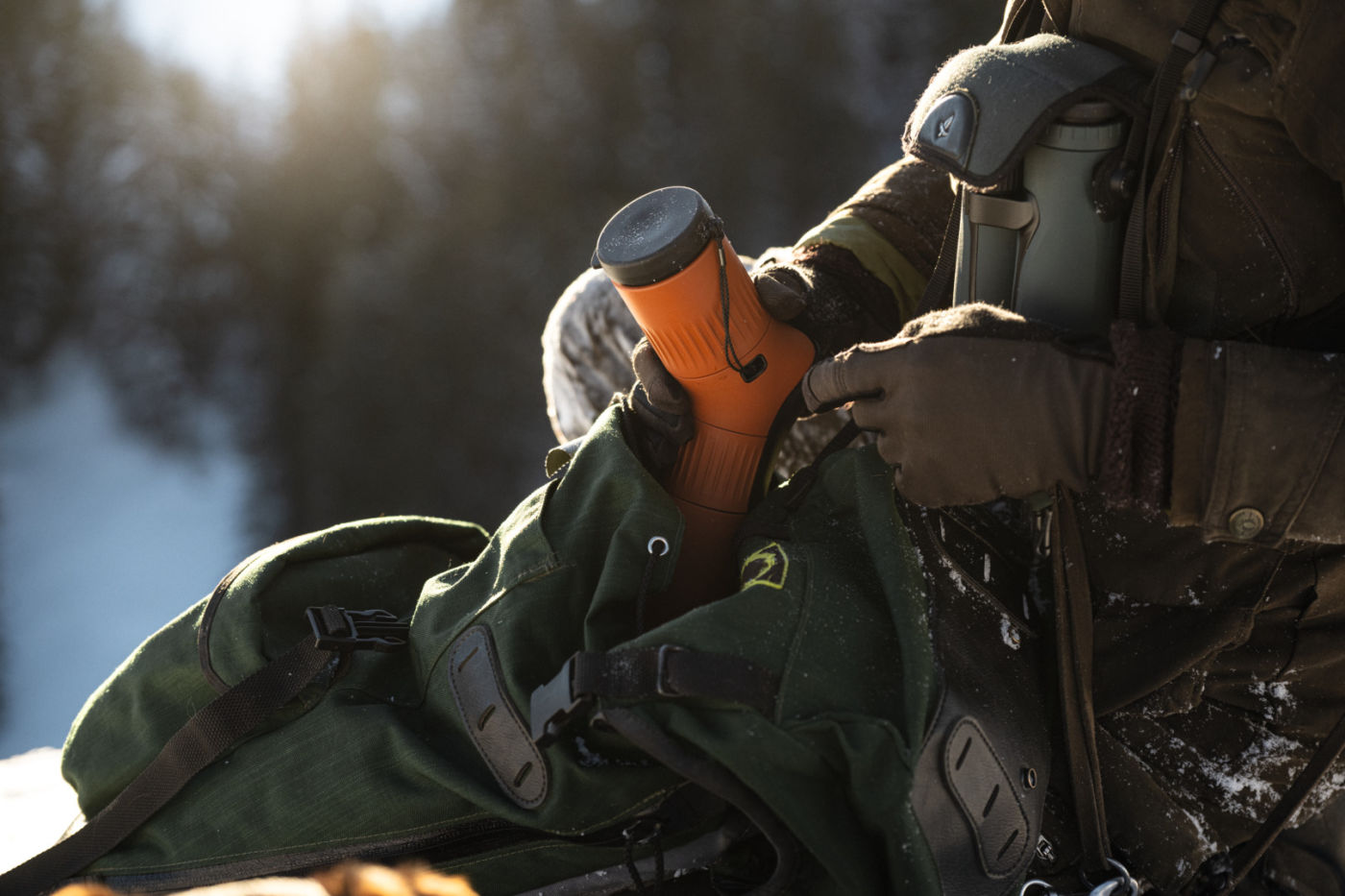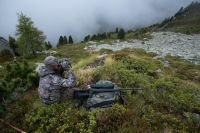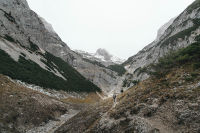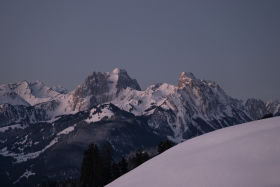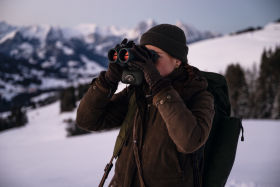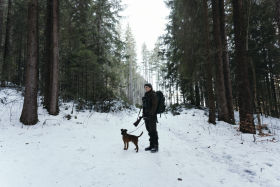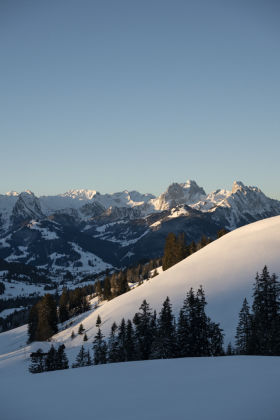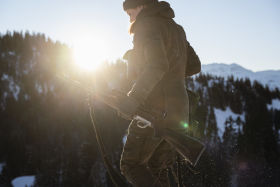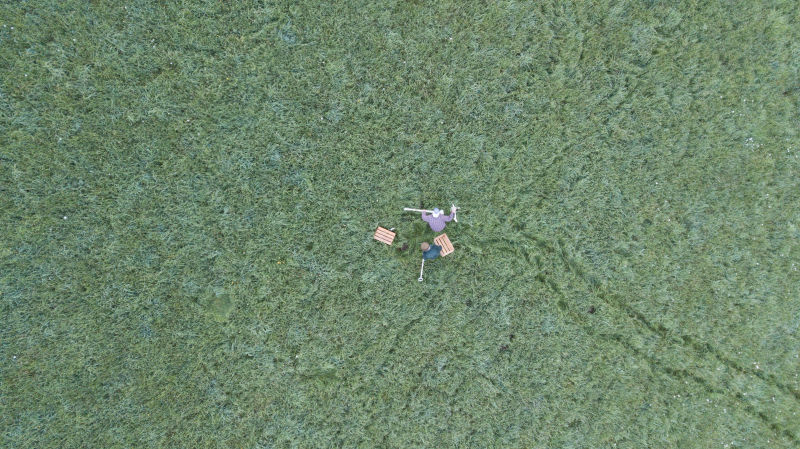In our interview, Swiss hunter Renate Fahrni explains what hunting means to her and which role tradition and sustainability play in Swiss mountain hunting.
How do you combine your passion for hunting with your work as a nurse?
In all areas of my life, I try to do only those things I truly believe in, and this allows me to do a lot of things with passion. Nature and hunting are a good balance for my job. They are a source of energy, help me switch off, and bring me experiences. This is my life and I thrive on it. It’s not a hobby. It’s a passion, a craft.
I come face to face with death in my work as well as in hunting. I’m very conscious of this, but I don’t find nursing to be a contradiction to hunting. Dying is simply part of life; even my job isn’t just about saving and healing. There are many times when we humans are powerless. We know someone is going to die and try to support them as best we can until the moment arrives. I’m very closely involved in matters of life and death. The death of an animal is simply part of hunting.
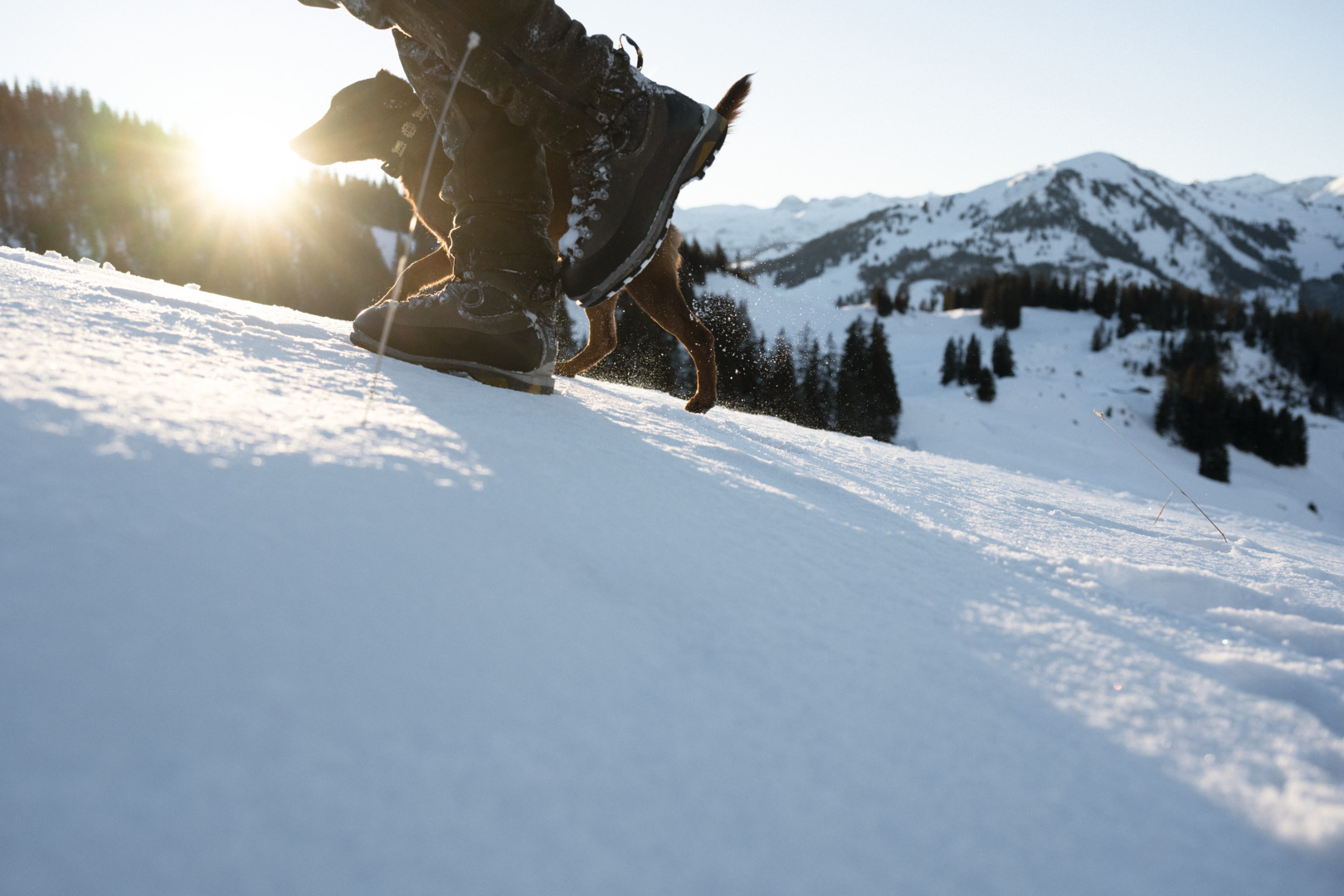
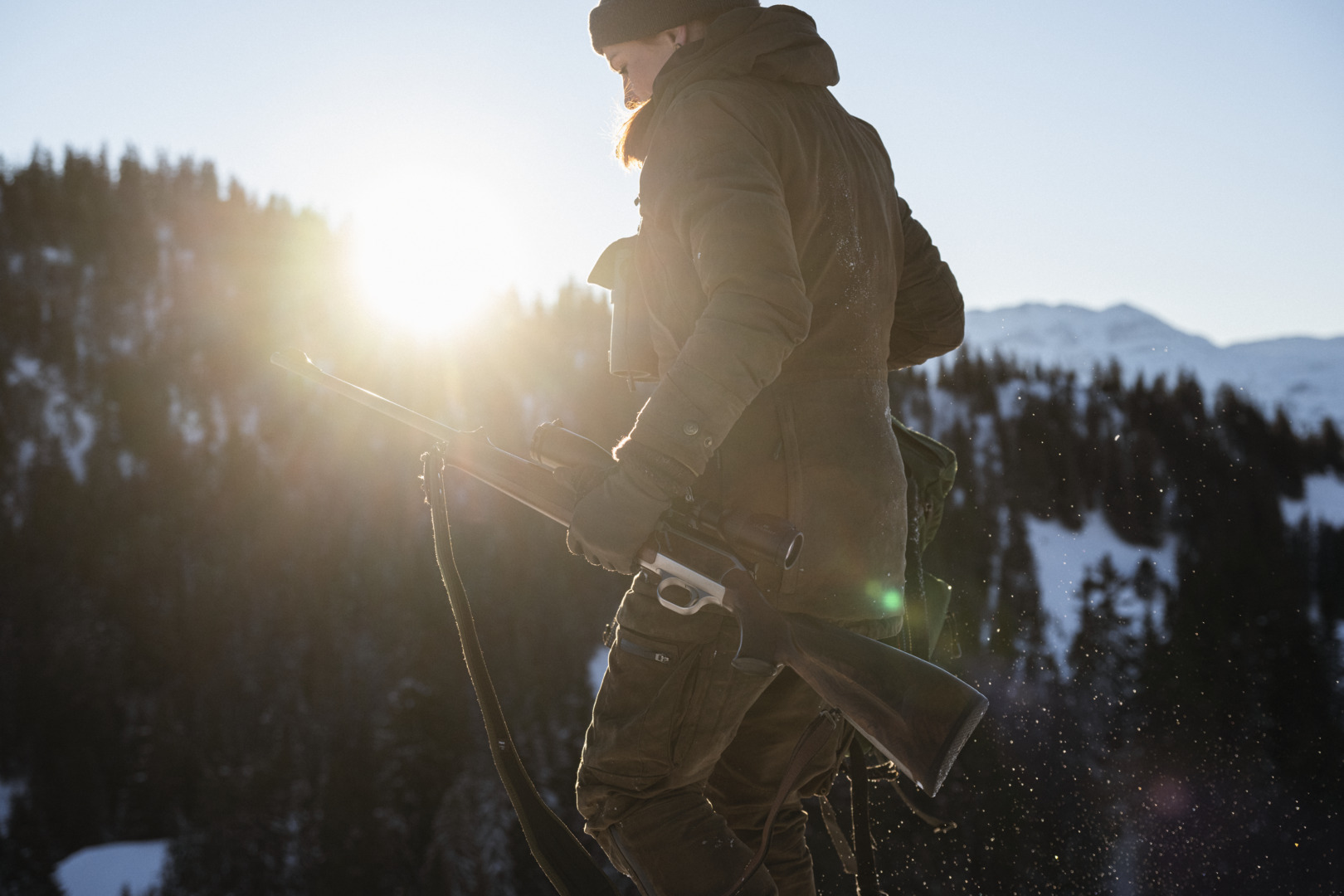
Can you describe your first experience of hunting?
It was a funny feeling. I’d gone out with my father before this. That was very exciting, and I had so many experiences, but I’d never been responsible for my own actions. My first real hunt was in Alsace, and I knew exactly which roebuck I wanted to shoot. But at the raised hide, I started to have my first doubts. I wasn’t sure how to position my firearm correctly on the railing, and my backpack was in the way too. I thought: “Oh, shit, can I actually do this?”
I couldn’t answer that question. Quite a few more animals then came into view and my nerves intensified: “Do I want this animal, or do I wait?” All of a sudden, you’re responsible for each of your actions and you alone decide whether this animal lives or dies. The roebuck I had picked out finally appeared. I took my shot, but rather than falling to the ground, the buck kept going. I thought: “Oh, no, I missed. Great, what do I do now?” So I phoned my father and told him he needed to come right away. He found this pretty funny. He’d been hunting for so long that he, of course, knew what had happened.
The roebuck was actually lying 50 meters (164 feet) away. It was a great shot, and everything was fine. These are the experiences no one tells you about before your first hunt.
What does sustainability mean for you and your meat consumption?
Sustainability is a big word. There’s so much we could do, but when we look at our own lifestyles, we often find lots of areas where we’re cheating. But as far as meat consumption is concerned, I feel mine is sustainable. 99 percent is meat I have harvested myself and I can happily do without the rest. I also try to use as much of the animal as possible. I don’t eat meat every day, but when I do, I want good game meat.
Hunting encourages far more conscious consumption, because you’re involved in every stage of the process. I know where the animal comes from, and also that someone has had to kill it first. Without this direct experience of hunting, you know it’s an animal, but you’re buying it nicely packaged rather than being confronted with the living creature. This would be much easier, but I’m very happy to know the whole process and it also makes me appreciate the meat far more.

What are the standout features of swiss hunting?
I can practice any kind of hunting in Switzerland. There is a great wealth of biodiversity, good wildlife populations, and you can hunt almost any species that is legally permitted. And Switzerland’s mountains, plains, and lakes bring me the whole spectrum of nature. The mountains are still my favorite place to be.


• Ammunition
• Binoculars
• Hunting license and other papers
• Walking boots
• Food and drink
• Changes of clothing for all weather
• Rope
• Spotting scope
• Hunting hat
• Knife
What role does tradition play when hunting in Switzerland?
Tradition is important for me too. For instance, I still prefer to wear the traditional green and brown hunting attire. There are customs too, such as reverence for the animal, which I’m sad to see increasingly being lost. Not forgetting traditions such as the last call, the hunter’s branch, celebrating with other hunters when the game has fallen.
Other hunters offer congratulations, wish you “Waidmannsheil” (traditional greeting between hunters in German), you take photos, and it’s a real ceremony. This social aspect is increasingly disappearing. In the past, hunters used to walk into the village with their harvested game and people came to look at the animals. It was pretty special. This hardly ever happens these days.
I’m proud to be a hunter and I want to show this, too. I don’t want to boast, but I do want to be able to stand up for it openly. When I’m wearing my green hunting hat, everyone can see that I’m a hunter. This is something to be proud of and we shouldn’t have to hide it, as quite a lot of people do to avoid confrontations
How can hunters help non-hunters understand their passion?
Personally, I’ve passed on my passion for hunting to almost all of my friends who had no interest whatsoever before. They heard me talk with such conviction about my passion and its great fascination and asked if they could come along.
I always agreed, of course, and at the end of the day they’ve said: “Okay, so that’s not how I imagined it. I’m blown away by all these moving, thrilling moments, your perception of nature, how you behave in nature, and toward the animals.” Before this, they had pictured it all completely differently.
But you can’t take everyone on a hunt. I actually find the public relations work almost the most important aspect. You need to be honest and authentic. Killing an animal is part of hunting, but there are all the other parts too. When you’re out hunting, you shouldn’t go out of your way to avoid people. You need to behave normally and clarify various questions with them rather than hiding. I believe hunters need to start going out in public and presenting their case.
We need to explain hunting and defend it. Given the high and continuously increasing number of opponents, we need to work 20 times as hard to support this craft.

How do hunting and
conservation fit together?
I find them a very good fit. Shooting an animal represents just a small percentage of my work; I also do a lot for nature. For example, my gamekeeping hours and fawn rescue work. In the latter, I reject the common accusation that we hunters only want to save the fawns so we can shoot them later. I don’t do this to shoot a deer once it’s grown. I do it to spare the animal from suffering. In general, I think the hunting community does a great deal to conserve nature, including in the widest sense.

About the author
Renate Fahrni
Renate Fahrni is a Swiss huntress from the Berner Oberland, Switzerland. Her hunting grounds are located in the mountainous Simmental and in the hilly Emmental.
She strongly believes in the compatibility of hunting and sustainability, of technology and tradition. Her voluntary work in the fawn rescue has a special place in her heart.
